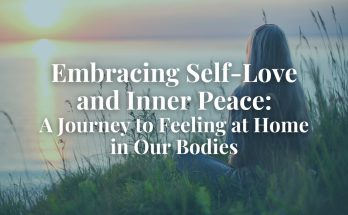Saying no is often framed as a negative or confrontational act, especially in professional environments where collaboration and responsiveness are highly valued. Yet, the ability to say no is a powerful form of self-care and boundary-setting that can have profound health benefits. It’s not about being difficult or disengaged—it’s about protecting your time, energy, and mental well-being. When practiced thoughtfully, saying no can reduce stress, prevent burnout, and support a more balanced and intentional life.
One of the most immediate health benefits of saying no is the reduction of chronic stress. Overcommitting, whether to projects, meetings, or social obligations, can lead to a constant state of overwhelm. The pressure to meet expectations, juggle responsibilities, and maintain a facade of control takes a toll on both the body and mind. Cortisol levels rise, sleep quality declines, and emotional resilience erodes. By saying no to non-essential demands, individuals create space to recover, recharge, and focus on what truly matters. This shift not only improves physical health but also enhances clarity and decision-making.
Mental health is also deeply impacted by the ability to set boundaries through saying no. When people consistently prioritize others’ needs over their own, they risk losing touch with their values and goals. This can lead to resentment, anxiety, and a diminished sense of self-worth. Saying no is a way to affirm personal agency and reinforce self-respect. It allows individuals to align their actions with their intentions, fostering a sense of integrity and empowerment. For example, a professional who declines a last-minute request to work overtime may feel guilty initially, but over time they recognize that honoring their limits supports both their well-being and their long-term effectiveness.
Saying no also contributes to better time management and productivity. When individuals take on too much, their attention becomes fragmented, and the quality of their work suffers. By being selective about commitments, they can allocate energy to high-priority tasks and maintain focus. This leads to greater efficiency and satisfaction, reducing the need for constant multitasking and reactive problem-solving. In business settings, leaders who model this behavior encourage their teams to do the same, creating a culture that values thoughtful engagement over constant availability. The result is a more sustainable and high-performing work environment.
Physical health benefits from saying no as well. Overextension can lead to neglect of basic wellness practices such as exercise, nutrition, and sleep. When individuals are constantly rushing or accommodating others, they often sacrifice their own routines. Saying no creates room for these foundational habits, which support immune function, cardiovascular health, and emotional stability. For instance, choosing to skip a non-essential evening event in favor of a home-cooked meal and a full night’s sleep can have a ripple effect on energy, mood, and overall vitality. These small decisions, repeated consistently, build a lifestyle that supports long-term health.
The social dimension of saying no is equally important. While relationships thrive on mutual support, they also require boundaries to remain healthy. Saying no to unreasonable demands or toxic dynamics helps preserve emotional energy and prevent relational burnout. It encourages honest communication and mutual respect, allowing connections to deepen rather than deteriorate. In professional networks, the ability to decline politely and assertively can enhance credibility and trust. People respect those who are clear about their limits and consistent in their commitments. Saying no, when done with empathy and clarity, strengthens rather than weakens relationships.
Learning to say no also cultivates emotional intelligence. It requires self-awareness to recognize when a request conflicts with your needs or values, and it demands courage to communicate that boundary. Over time, this practice builds confidence and emotional maturity. Individuals become more attuned to their internal signals and more skilled at navigating complex interpersonal situations. They learn to distinguish between guilt and responsibility, between obligation and choice. This emotional clarity supports healthier decision-making and reduces the internal conflict that often accompanies overcommitment.
Incorporating the habit of saying no into daily life doesn’t mean becoming rigid or uncooperative. It means being intentional and discerning. It means recognizing that every yes carries a cost, and that protecting your health sometimes requires declining even appealing opportunities. For professionals, this can be particularly challenging, as ambition and collaboration are often rewarded. Yet, the most effective leaders and contributors are those who manage their energy wisely and maintain boundaries that support their well-being. They understand that sustainable success depends not on doing everything, but on doing the right things well.
Ultimately, the health benefits of saying no are rooted in balance. It’s about creating space for rest, reflection, and renewal. It’s about honoring your limits so you can show up fully and authentically in the areas that matter most. In a culture that often equates busyness with value, saying no is a radical act of self-care. It’s a way to reclaim your time, protect your health, and live with greater intention. When practiced consistently and respectfully, it becomes a cornerstone of a life that is not only productive but also deeply fulfilling.



